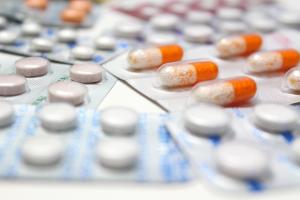Help keep antibiotics working
Date published:

Ask your GP or pharmacist
Your GP or pharmacist will advise whether you need an antibiotic.
Antibiotics are needed for serious bacterial infections.
Overuse of antibiotics means the bacteria are getting more resistant, and the medication is becoming less effective.
This is an issue that affects everyone and could have devastating health consequences.
Some of the ways you can help:
- don’t take antibiotics that haven’t been prescribed for you
- if your doctor prescribes an antibiotic, make sure you take it according to the instructions
- make sure you finish the course of antibiotics and don’t just stop because you’re feeling better
- never share antibiotics with anyone else or use leftover antibiotics
- return any unused antibiotics to your local pharmacy
- wash your hands to help prevent the spread of infection, especially:
- after using the bathroom
- before preparing or eating food
- after coughing or sneezing
- if your hands are visibly dirty
You can find more information about using antibiotics wisely at these links:
Colds or flu
Antibiotics are not effective against simple infections, such as a cold or flu.
The first place to get advice is from your pharmacist. There are things you can get over the counter to look after yourself during your illness and ease the symptoms until you're better.
You can find useful information on these pages:
Antibiotics and pets
If you own a pet, a vet prescribes antibiotics and they will decide which antibiotic (at what dose and for how long) is correct.
Follow the advice given by your vet and use any antibiotics prescribed as instructed on the label.
Return any unused antibiotics to the vet practice.
Using antibiotics in agriculture
Antibiotics are essential medicines for treating bacterial infections in animals. Everyone using antibiotics in agriculture should make sure they are used responsibly to make sure they stay effective.